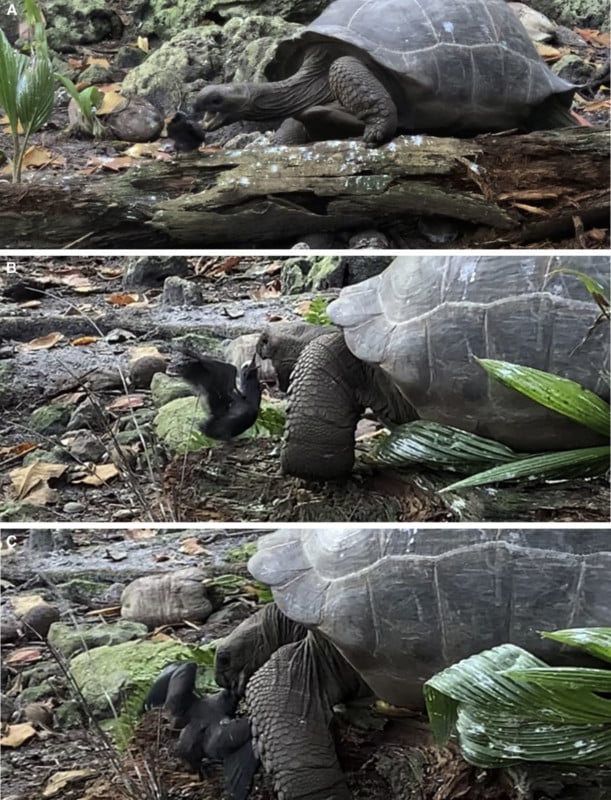Giant Tortoise Caught on Camera Killing and Eating Bird
Scientists have captured the first-ever images of a giant tortoise hunting, killing, and eating a bird. The “gentle giants” were previously believed to be herbivores.
As the video above shows, the tortoise patiently pursues the young bird, which couldn’t fly yet, until the prey was cornered. After a bite to the head that killed the bird, the tortoise then proceeded to swallow it in one bite. The entire hunt lasted about 7 minutes.
“When I saw the tortoise moving in a strange way I sat and watched, and when I realized what it was doing I started filming,” says scientist Anna Zora, co-author of the study.
Researchers say this deliberate hunting behavior has never been caught on camera before. Tortoises were thought to be vegetarian, though they have been observed feeding on the decayed flesh of dead animals as well as bones and shells for calcium.
“This is completely unexpected behavior and has never been seen before in wild tortoises,” says Dr. Justin Gerlach, an affiliated zoology researcher at the University of Cambridge and leader of the study. “The giant tortoise pursued the tern chick along a log, finally killing the chick and eating it.
“It was a very slow encounter, with the tortoise moving at its normal, slow walking pace – the whole interaction took seven minutes and was quite horrifying.”

Scientists believe that the explosion of the sea-bird population on the island due to habitat restoration in recent years has created an environment that allows the tortoises to be carnivorous.
“The ground under the colony is littered with dropped fish and chicks that have fallen from their nests,” the University of Cambridge writes. “In most places, potential prey are too fast or agile to be caught by giant tortoises.
“The researchers say that the way the tortoise approached the chick on the log suggests this type of interaction happens frequently.”
The findings from this study were published today in a paper titled “Giant tortoises hunt and consume birds” in the journal Current Biology.